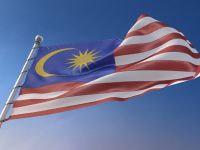The commander of the British army marching on the Afghan capital Kabul in 1839, General Sir John Keane, wrote in a private letter to a friend, "mark my words there will be a signal catastrophe."
As Washington prepares to punish Afghanistan for providing shelter to Islamic extremist leader Osama bin Laden, it would do well to remember the lessons of the past about the ferocity of Afghan resistance to invaders.
If the United States does not, it would not be the first to fall into the trap.
"Had the Soviet Union in 1979 remembered Britain's unhappy experiences in Afghanistan, in not dissimilar circumstances, then it might not have fallen into the same terrible trap," says historian Peter Hopkirk in his book the "Great Game."
The British army first entered the inhospitable landlocked country of waterless deserts and mountain barriers in the hope of installing an obedient ruler to help thwart advances by Britain's imperial rival, Russia, into Central Asia.
The first Anglo-Afghan war ended in humiliation with the massacre of some 16,000 British soldiers and their helpers as the column retreated over the snow-filled passes of the Hindu Kush in 1842.
Britain had been incapable of imposing order on Afghanistan's numerous and unruly ethnic, religious and cultural tribes. Nor were they able to win much loyalty.
And the British army underestimated the ferociousness of the country's poorly-equipped bearded marauders.
Over a century later, Soviet forces flooded the country to prop up an unpopular puppet communist regime in Kabul put in place after Moscow helped overthrow a brutal dictator who refused to bend to Russian influence.
But the regime, backed by some 120,000 Soviet troops, failed to impose its authority outside Kabul and the Mujahideen - "freedom fighters" trained and equipped by Pakistan and the United States - soon won control of vast stretches of countryside.
Afghanistan again became a death-trap and a Russian soldier's worst nightmare. As the Mujahideen became better organized and equipped they began to exact a heavy toll, particularly after the US provided them with heat-seeking Stinger missiles which seriously threatened Russia's air superiority.
Ahmed Shah Massood, the fabled Mujahideen commander who was assassinated last week, said at the time: "We will not be a pawn in someone else's game, we will always be Afghanistan!"
On the international level, the Soviet Union's attack on Afghanistan alienated much of the Islamic world, including large Muslim communities living in Soviet Central Asian republics, and further soured relations with the West.
After the death of 15,000 Soviet troops and around one million Afghans and 10 years of war, Moscow pulled out, having never succeeded in imposing its authority or setting up a viable government.
Soon afterwards, the Mujahideen turned its arsenal of imported weapons on each other and the country was plunged into civil war as the rival religious, ethnic and ideological groups fought for supremacy.
Out of the rubble walked a new breed of fundamentalist Islamic fighters who swept all before them -- the Taliban. Born out of Islamic universities and refugee camps in Pakistan, the Taliban seized Kabul in 1995 and quickly set about building a pure Islamic state that harked back to the Middle Ages.
After hijacked airliners rammed in the World Trade Center and Pentagon killing an estimated 5,000 people, US President George W. Bush called on the Taliban to hand over Bin Laden or face a massive counterattack.
So what lessons should be drawn? Former president Bill Clinton learnt that bombing Afghanistan has little effect given that there few high-profile targets and that after a decade of conflict there is not much left standing.
If the United States launches a risky ground attack it risks getting bogged down fighting elusive guerrillas in terrain of their own choosing, much like the Soviet troops who claimed to see the Mujahideen only when they were under attack.
Though Washington has sought to avoid drawing parallels between previous conflicts and their anti-terror campaign, they should not ignore Hopkirk's conclusion: "the Afghans, Moscow found too late, were an unbeatable foe” -- PARIS (AFP)
© 2001 Al Bawaba (www.albawaba.com)









